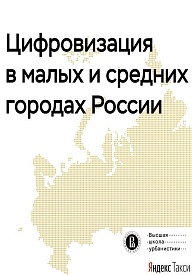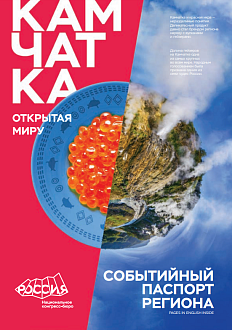Digitalization may have a major impact on all the universally recognized parameters of the living standards. Meanwhile, in Russia, despite its stable position in the world rankings of countries by primary digitalization (availability and quality of infrastructure), the situation with secondary digitalization (digital skills of the population) is uncertain. Research on digital services penetration in small and medium-sized towns is of particular relevance to the process of building a digital economy because one-third of Russias urban population reside in such towns. It should be noted that digital infrastructure alone is not enough its equally necessary to form an ecosystem and a culture of using the available technologies, i. e. the so-called digital skills of Internet users.
The results of the research done by Vysokovsky Graduate School of Urbanism (GSU, a learning and research division of the Faculty of Urban and Regional Development of the National Research University Higher School of Economics) in collaboration with Yandex.Taxi demonstrate that residents of smaller towns mostly use the Internet for communication, while in large cities, besides messengers and social networks, people also use the Internet for online shopping, financial transactions, and online public services. Best of all, the difference between large and small towns in using digital services is illustrated by the practice of online shopping. Also, the share of people who use state and municipal online services is nearly 20 percentage points greater in cities with a population of over 1 million. According to GSU experts, the reason for this difference isnt that people in small towns lack web skills. Rather, they are unaccustomed to using such services.
.png)
A distinctive feature of small towns is low penetration of local digital services (home delivery of purchased goods, online food ordering, online shopping in local stores, booking tickets for local events, online taxi booking, etc.) because these services must be received at the clients location and, consequently, providers require local employees and infrastructure.
.png)
GSU experts divide the process of urban digitalization into three stages. At the first stage, information services and online taxi booking services are introduced. This way, the town receives basic digital infrastructure which includes data on local organizations and services, their working hours, etc. Later, goods delivery services are created, which further integrates the town into the settlement system. Finally, at the third stage, delivery of services (notably, online food ordering) is developed, which means that traditional consumption patterns are rejected in favor of a new model of consuming urban environment. Thus, creating a digital foundation together with integrating a town into the settlement system paves the way for local online services so that the town moves to the next stage of digitalization.
This publication has been posted in the Roscongress Information and Analytical System on the recommendation of the Roscongress Foundation expert community.






